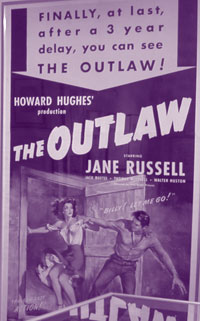By Marisa Holmes
Kristen Rowe-Finkbeiner, author of The F-word: Feminism in Jeopardy, has made some startling observations. She explains how, in the current political climate, young women do not have a significant voice due to their own resistance. Women between 18 and 24 years of age are the least likely group to show up at the polls. Only one third of them voted in the 2000 election.
Rowe-Finkbeiner visited countless college campuses in an attempt to find the root of this lack of participation. She found that while these smart and independent women expressed concern about gender equality, reproductive rights, and balancing work with family–all social issues for which their mothers fought–they did not want to be classified in the same manner as their mothers. Surprisingly, 68 percent of women surveyed do not want to be labeled as a feminist. They found the term insulting.
Is being a feminist suddenly taboo? Maybe I just didn’t get the memo, but I’m a feminist and proud to be called one! The Bush Administration, in conjunction with a Republican majority in both houses of Congress, is waging an all-out war on abortion and has imposed global gag rules that have cut funding for clinics in the most impoverished and disease-stricken nations of the planet. If there was ever a time to be a feminist, this is it.
It is no secret that the Bush Administration has been and will continue to campaign against the reproductive rights of women. They cater to the pro-life right. This is their base, so it is expected. President Bush even stated in an executive memorandum, “It is my conviction that taxpayers’ funds should not be used to pay for abortion, either here or abroad,” and he has stayed true to his conviction.
He has systematically encouraged and signed legislation that limits abortion procedures here at home. The Partial Birth Abortion ban, passed in February of 2003, deemed third trimester abortion procedures illegal, with no exceptions. The life of the mother wasn’t even taken into account. There were no loopholes. Last May, Congress passed the Unborn Victims Act, which protects the life of the fetus by considering the destruction of the fetus second-degree manslaughter. Bush happily signed this legislation in the wake of the Lacey Peterson trial.
The Republican Congress has introduced refusal clauses that threaten to limit the access women have to proper healthcare. The Federal Refusal Clause would allow health insurance companies to refuse to provide abortion procedures or information regarding procedures, even if the woman asks in cases of rape or incest. The Pharmacists Refusal Clause would give pharmacies the option of not filling prescriptions if they had “moral objections” to the medication. If passed, these clauses would directly impede women from receiving the care they deserve.
The FDA (Food and Drug Administration) is also at fault for limiting access to medication. Last May, the pill EC (Emergency Contraceptive), also known as “The Morning-After Pill,” was due for approval and the FDA refused. This came as a surprise since both the American Medical Association and the American College of Obstetricians and Gynecologists approved of the medication’s switch to over-the-counter status. Designed to be used in cases of rape or incest, EC needs to be easily available. Time is of the essence with this pill because it must be used within 72 hours of intercourse in order to be effective.
President Bush has brought his “moral” agenda to other nations as well. Less than a week after entering office, he signed a global gag rule that cut funding for international organizations that offered sex education and performed abortions for citizens of African nations such as South Africa and Kenya, countries where HIV and AIDS are a growing epidemic. Republicans would prefer a faith-based initiative for disease control.
The Religious Right seems to be controlling the agenda in Washington. In the name of “morality” women are being stripped of their reproductive freedoms. Women, however, have worked too hard to earn the right to make decisions about their bodies to succumb without a fight. A generation ago, women lost their independence when wedding bands slipped tightly over their fingers. There was no “choice.” Betty Friedan discusses this obligatory life of Stepford wives in The Feminine Mystique. She states, “Each suburban housewife struggled with it alone. As she made the beds, shopped for groceries, matched slipcover material, ate peanut butter sandwiches with her children, chauffeured Cub Scouts and Brownies, lay beside her husband at night, she was afraid to ask herself the silent question: ‘Is this all?'”
Friedan and her fellow feminists defined the women’s movement and pushed for social change. They marched, picketed, spoke to legislators and won battles in the courts. Prior to Roe v. Wade, nearly 1.2 million illegal abortions were performed annually, causing 5,000 to 10,000 deaths. Legalizing abortion made it possible to drastically reduce these deaths, but it also gave women the power to choose, not just whether or not to have a child, but how to live their lives.
Today, the very place that gave women the right to choose may be the one to take it from them. Chief Justice William Rehnquist has recently been diagnosed with thyroid cancer and will be stepping down, which means that the President has at least one opportunity to appoint a new judge. Three other members of the court are also expected to retire shortly due to disease. Ruth Bader Ginsburg, for instance, has been suffering from breast cancer for some time now. Even if she is the only one of three to step down, the balance will shift. It would take only one other social conservative on the bench to overturn Roe.
If we are this close to losing the battle for choice, then the question remains: why don’t we fight for the rights we are being stripped of?
Shanta Evans is a 25-year-old grassroots organizer for Planned Parenthood in Connecticut and is tuned into what young women think regarding women’s issues. In an interview with Catherine Blinder of the Hartford Courant, Shanta stated, “The stereotype of women who consider themselves feminists is that we’re not sexual, that we’re not fun.” She goes on to say how young women feel a need to rebel against this image of the traditional feminist.
It seems that the worn image of the bra-burning, mega-phone toting woman has given feminists a bad name. When Gloria Steinem spoke out against a patriarchal society and the need for real reproductive freedoms and equality she faced a daunting task of achieving reform, but the new generation does not recognize this struggle. After being lectured on its importance in history classes across America, young women have become spoiled. Since they haven’t had to fight for their rights, observers such as Evans would say, they don’t have an interest in protecting them.
The March for Women’s Lives held in Washington D.C this past April 25th was a sign that young women understand what’s at stake. Nearly one-third of registered marchers were under the age of 25. Young women seemingly want to be heard by legislators, however, they have yet to define the message.
The lack of a solid agenda is the greatest problem facing the women’s movement today. There is definitely more work to be done, so this new wave of feminists must step up and take a stand. Young women of today do not need to scorn the past that bore them. Instead, we must all rise to the challenge of re-writing the meaning of the term.
Related link:
www.plannedparenthood.org
Photo by C. Taylor
February 2005








